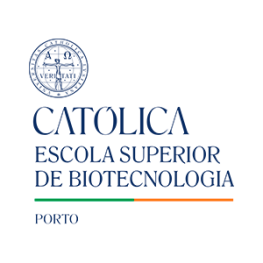Instituições de Ensino:
Apresentação do Curso
The Doctoral programme in Biotechnology draws from ESB’s (Faculty of Biotechnology of Universidade Católica Portuguesa) more than 30 years of experience in postgraduate research and teaching in many areas of biotechnology. The main objective of the PhD programme in Biotechnology is to prepare a new generation of professionals, capable of promoting R&D activities, both at academic, research, and industry environments. Exposed to an international research environment since it’s beginning, ESB’s research unit – the Centre of Biotechnology and Fine Chemistry (CBQF) – boasts the highest of scientific and academic standards. Growth and consolidation of research activities at CBQF have led ESB to promote an ambitious research initiative – with broad-based activities in Biotechnology, predominantly in the areas of food and the environment, and their links to health and well-being, since 2004, CBQF has been granted the prestigious status of State Associated Laboratory, and presently rated as “Excellent”.
Benefiting from its multidisciplinary activities, the programme offers specializations in Food Science and Engineering, Environmental Science and Engineering, Biomedical Science and Engineering, Microbiology and Chemistry, which mirror the research developed at CBQF. Research activities within CBQF are developed with a clear conscious of the importance to conduct fundamental research while reflecting the needs of the industry. The proximity to technology transfer and industrial services activities potentiates greatly the research environment of the CBQF. Further, the intensive collaboration with industry and other national and international research groups fosters the excellence of the programme.
Over more than 30 years, the PhD programme in Biotechnology has prepared many highly qualified experts, who are currently working in various academic and R&D institutions or in the business sector, in Portugal or abroad. The distinguishing assets of this programme are clear from its beginning, which is fully accredited by A3ES for the maximum period.
This Doctoral programme is designed to provide the development of skills in the areas of Chemistry, Biology, Microbiology, Engineering, and in other relevant areas of Biotechnology. Graduates of the programme are prepared to perform in academic and/or professional contexts, as much in terms of the social and cultural context as of the technological one.
During the PhD in Biotechnology studies, students should produce research, which through publication in highly ranked journals, contributes to extend the frontiers of knowledge in biotechnology. Additionally, the graduate student should reveal the ability to critically analyze, evaluate, synthesize and communicate results from scientific or technological research both to the scientific and academic communities and to the industrial sector and society in general.
Doctors in Biotechnology will be able to demonstrate:
- A systematic understanding of Biotechnology in its many forms and subsectors;
- Capacity to perform, the various methodologies employed in the disciplines which make up the general area of Biotechnology;
- The ability to conceive, design, adapt and perform novel scientific research in Biotechnology, according to the requirements imposed by the highest standards of academic quality, and Ethics in research;
- The ability to critically analyze, evaluate and synthesize new and complex ideas in Biotechnology;
- The ability to play an active role in knowledge and technology transfer between university and business companies, demonstrating entrepreneurship skills;
- The ability to communicate with peers, the academic community, companies and society in general.
Instituições de Ensino:
Apresentação do Curso
The Doctoral programme in Biotechnology draws from ESB’s (Faculty of Biotechnology of Universidade Católica Portuguesa) more than 30 years of experience in postgraduate research and teaching in many areas of biotechnology. The main objective of the PhD programme in Biotechnology is to prepare a new generation of professionals, capable of promoting R&D activities, both at academic, research, and industry environments. Exposed to an international research environment since it’s beginning, ESB’s research unit – the Centre of Biotechnology and Fine Chemistry (CBQF) – boasts the highest of scientific and academic standards. Growth and consolidation of research activities at CBQF have led ESB to promote an ambitious research initiative – with broad-based activities in Biotechnology, predominantly in the areas of food and the environment, and their links to health and well-being, since 2004, CBQF has been granted the prestigious status of State Associated Laboratory, and presently rated as “Excellent”.
Benefiting from its multidisciplinary activities, the programme offers specializations in Food Science and Engineering, Environmental Science and Engineering, Biomedical Science and Engineering, Microbiology and Chemistry, which mirror the research developed at CBQF. Research activities within CBQF are developed with a clear conscious of the importance to conduct fundamental research while reflecting the needs of the industry. The proximity to technology transfer and industrial services activities potentiates greatly the research environment of the CBQF. Further, the intensive collaboration with industry and other national and international research groups fosters the excellence of the programme.
Over more than 30 years, the PhD programme in Biotechnology has prepared many highly qualified experts, who are currently working in various academic and R&D institutions or in the business sector, in Portugal or abroad. The distinguishing assets of this programme are clear from its beginning, which is fully accredited by A3ES for the maximum period.
This Doctoral programme is designed to provide the development of skills in the areas of Chemistry, Biology, Microbiology, Engineering, and in other relevant areas of Biotechnology. Graduates of the programme are prepared to perform in academic and/or professional contexts, as much in terms of the social and cultural context as of the technological one.
During the PhD in Biotechnology studies, students should produce research, which through publication in highly ranked journals, contributes to extend the frontiers of knowledge in biotechnology. Additionally, the graduate student should reveal the ability to critically analyze, evaluate, synthesize and communicate results from scientific or technological research both to the scientific and academic communities and to the industrial sector and society in general.
Doctors in Biotechnology will be able to demonstrate:
- A systematic understanding of Biotechnology in its many forms and subsectors;
- Capacity to perform, the various methodologies employed in the disciplines which make up the general area of Biotechnology;
- The ability to conceive, design, adapt and perform novel scientific research in Biotechnology, according to the requirements imposed by the highest standards of academic quality, and Ethics in research;
- The ability to critically analyze, evaluate and synthesize new and complex ideas in Biotechnology;
- The ability to play an active role in knowledge and technology transfer between university and business companies, demonstrating entrepreneurship skills;
- The ability to communicate with peers, the academic community, companies and society in general.





